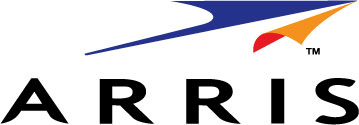Arris Knocks CPE Sales Out of the Park
The smarter way to stay on top of the multichannel video marketplace. Sign up below.
You are now subscribed
Your newsletter sign-up was successful

Arris Group shipped a record 2.63 million customer-premises equipment units in the third quarter of 2012, with the vendor citing MSOs’ back-to-school marketing initiatives as helping boost sales.
After the company reported earnings, its stock climbed 6.7%, closing at $13.90 per share Thursday.
Arris’s revenue in the quarter ended Sept. 30 was $357.5 million, up 30% year over year and 2.3% sequentially. The company said the increase was partly due to the late Q4 2011 acquisition of BigBand Networks but was primarily attributable to the higher demand for DOCSIS 3.0 CPE equipment.
The CPE shipment total “far exceeds any prior quarter,” Arris chairman and CEO Bob Stanzione said on a call with Wall Street analysts Wednesday.
“We continue to make good progress with our video gateway solutions with the addition of several small operators and by adding features to meet emerging customer demands,” Stanzione said. He added that several larger customers are interested in Arris’s video gateways based on Comcast’s RDK and Cisco’s NDS software.
Revenue from Arris’s two biggest customers -- Comcast and Time Warner Cable -- increased dramatically in the quarter. Sales to Comcast grew 47% year over year to $117.7 million and sales to TWC jumped 91% to $69.0 million.
However, according to Stanzione, cable modem and gateway sales are expected to be down in the fourth quarter of 2012 “in favor of higher-margin network infrastructure sales,” particularly due to an increase in CMTS upgrades.
The smarter way to stay on top of the multichannel video marketplace. Sign up below.
For the fourth quarter of 2012, Arris expects revenue in the range of $345 million to $365 million, with net income per diluted share between $0.13 to $0.17, reflecting higher CMTS demand, chief financial officer David Potts said.
Jefferies & Co. analyst James Kisner raised full-year estimates for Arris slightly, pegging 2012 revenue at $1.37 billion (from $1.36 billion) and earnings per share at $0.94 (versus $0.87 previously).
“We expect Arris to benefit as cable operators deal with a ‘deluge’ of IP-data traffic on their broadband networks,” Kisner wrote in a research note Thursday. He added that he still sees significant potential upside if data traffic grows even faster, if Arris scores incremental wins for its Moxi IP Video Gateway or if incremental CPE shipments increase as MSOs replace DOCSIS 2.0 CPE.
Sales through the first nine months of 2012 were $1.0 billion, up 25% over the same period in 2011. Net income in the third quarter was $17.9 million ($0.15 per diluted share) versus $13.7 million ($0.11 per diluted share) in the year-ago period.
Arris’s gross margin was down in Q3 because of the stronger CPE sales. Gross margin was 31.3% in the period, versus 36.5% in the third quarter last year and 33.9% in the second quarter of 2012. Of the CPE units shipped in the third quarter, 88% were DOCSIS 3.0-capable and about 45% were Wi-Fi-enabled.
The company shipped 81,364 downstream and 34,324 upstream CMTS ports in the period. Stanzione said CMTS shipments were low in the third quarter and that “there is a make-up for that in the fourth quarter where our customers are getting ready for increased traffic over their networks as the days and months go on.” He also noted that Arris shipped a 24-channel upstream card earlier this year, with demand for that peaking in the second quarter.
At the SCTE’s Cable-Tec Expo in Orlando last week, Arris introduced the E6000 Converged Edge Router, designed to meet CableLabs' CCAP spec for a high-density, integrated headend device. The product was developed in collaboration with Comcast, Time Warner Cable, Liberty Global and several others, Stanzione said.
Arris is looking at the second quarter of 2013 for recognizing revenue for the E6000 “although there is certainly a chance we could recognize it in the first quarter,” group president of products and services Bruce McClelland said on the analyst call.
Regarding the competitive landscape, Stanzione said on the call that he didn’t see that Motorola Mobility being part of Google has made them “any more vulnerable than they have been in the past.”
Stanzione added “from what I hear and what we see in the competitive marketplace, [Motorola is] as sharp a competitor as they have been and I would say the same about Cisco.”
